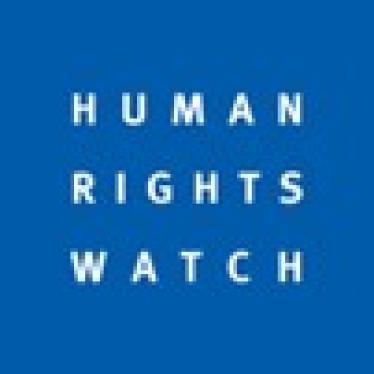As the world prepares to celebrate World Health Day on April 7, governments’ failure to invest adequate resources or appropriate budgetary support in public healthcare systems undermines the right to health for many people around the world.
Forthcoming Human Rights Watch analysis of the most recent available data in the World Health Organization’s (WHO) Global Health Expenditure Database shows that most governments spent less than 5 percent of their Gross Domestic Product (GDP) or 15 percent of their national budget on health care in 2021. These two benchmarks are largely accepted spending targets in public health care.
Even amid the massive surge in global healthcare spending in 2020-2021, at the height of the Covid-19 pandemic, 80 percent of the world’s population lived in countries that met neither spending benchmark. Indeed, when adjusted for inflation, 41 countries saw real-term declines in their per capita public healthcare spending between 2019 and 2021, despite the fact that most of them actually experienced an increase in GDP per capita in the same period.
Access to quality public services, including health care, is essential to the realization of human rights. Under international human rights law, governments have an obligation to ensure that healthcare goods and services are available, accessible, acceptable, and of good quality.
Adequate funding is a vital part of a states’ ability to fulfill these obligations, and they have a duty to use the maximum of their available resources towards realizing rights, including the right to health. While funding is far from the sole criteria to determine availability, accessibility, or quality, these data from the WHO make clear that greater government spending on health care generally correlates with more of the population enjoying access to essential healthcare goods and services.
Governments that are falling behind should set concrete steps to reach these spending benchmarks including, where necessary, by implementing ways to raise revenues such as through stemming tax abuses or via progressive taxes. Over the coming months, governments will have several chances to take these steps, including, in particular, at the 77th World Health Assembly in May, at the United Nations Summit of the Future in September, and at the fourth International Conference on Financing for Development in 2025.
The theme of this year’s World Health Day, “my health, my right”, is more than just a catchy slogan. It’s a reminder of governments’ obligation to ensure the highest attainable standard of health for all.









